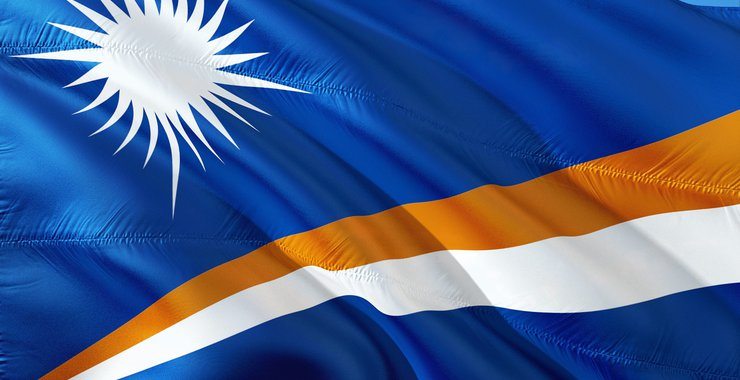The Republic of the Marshall Islands, an island country and a United States associated state, is reportedly still planning to launch its own cryptocurrency – as the nation’s president, Hilda Heine has managed to survive a vote of no confidence.
President Heine Survices Vote Of No Confidence
As CryptoGlobe reported in May, the Marshall Islands had put in place a bill that aimed to use its newly developed cryptocurrency, the Sovereign (SOV), as its national legal tender.
Notably, president Heine faced a vote of no confidence as eight members of the island country’s senate had alleged that the former minister of education damaged the nation’s reputation by supporting the launch of a sovereign cryptocurrency.
Despite the strong opposition to Heine’s backing of a national digital currency, she still survived the vote of no confidence – only by a single vote.
Brenson Wase, the nation’s finance minister, said the Marshall Islands is now planning to follow through with its initial plans of launching a national cryptocurrency. The country’s government also intends to raise funds for development by selling half, or 50 percent, of the digital currency’s total supply to international investors.
National Digital Currency Already Has “Legal Tender Status”
Marshall Islands’ citizens may receive the remainder of the national crypto’s initial supply and/or it may held in a government-owned trust fund. At present, the Marshall Islands has not announced a specific date by which its initial coin offering (ICO) will be begin.
However, David Paul, the minister-in-assistance to the president, had stated in February that the national digital currency had been granted “legal tender status” by the nation’s parliament. A official statement from the Marshall Islands’ government had noted:
This creates legal certainty for its use, because all jurisdictions have laws in place for dealing with legal tender, whereas private cryptocurrencies are dealt with differently in different jurisdictions.
IMF Warns Against Potential Risks Of National Crypto
In September, the International Monetary Fund (IMF) had warned the Marshall Islands regarding the risks associated with introducing a second form of legal tender, in addition to the USD.
Specifically, the IMF had said: “The issuance of a decentralized digital currency as a second legal tender would increase macroeconomic and financial integrity risks, and elevate the risk of losing the last U.S. dollar correspondent banking relationship.”
Responding to the IMF’s concerns, a report from the Marshall Islands’ government stated:
The Marshallese authorities are well aware that issuing a legal tender cryptocurrency puts RMI into uncharted waters, and that there are many risks involved in issuing the SOV. However, they believe they can work through these issues. They have created a high-ranking committee to examine all the risks, including those raised by the IMF and the US Treasury, and those discussed during the public hearings on the legislation.
Notably, the IMF did not completely dismiss the idea of launching a national digital currency – as it mentioned in its report that “it will take a few years to issue the cryptocurrency.”
The IMF explained that-it would take time before regulators are able to make sure it complies with the FATF (Financial Action Task Force) standard and other regulatory guidelines outlined by the US government.








